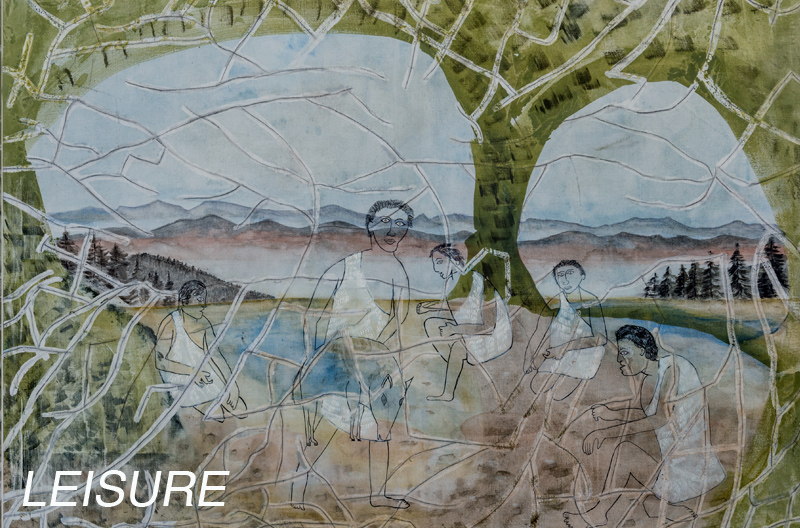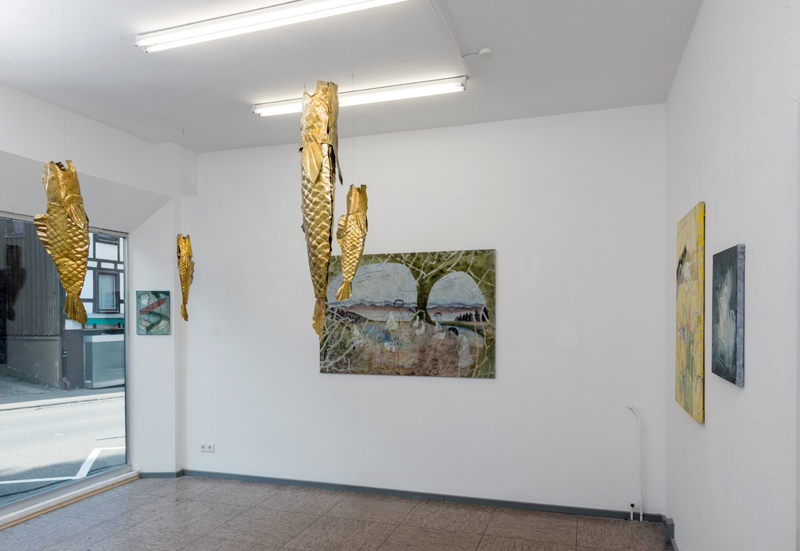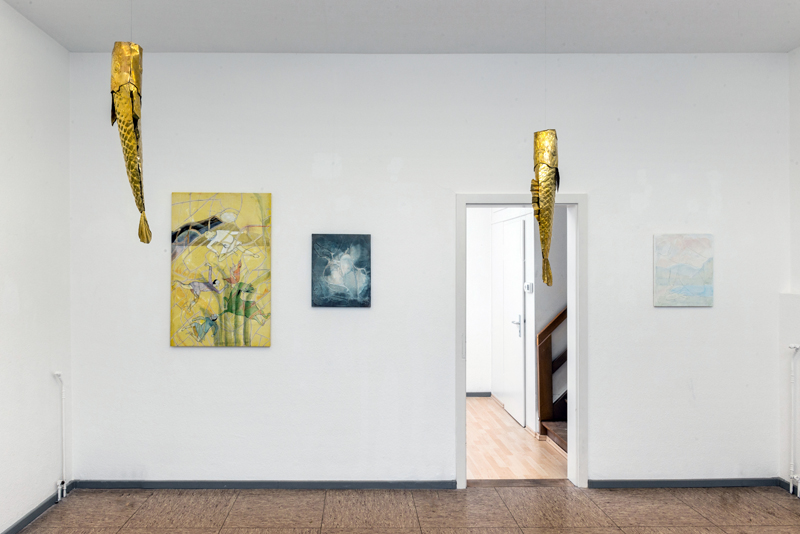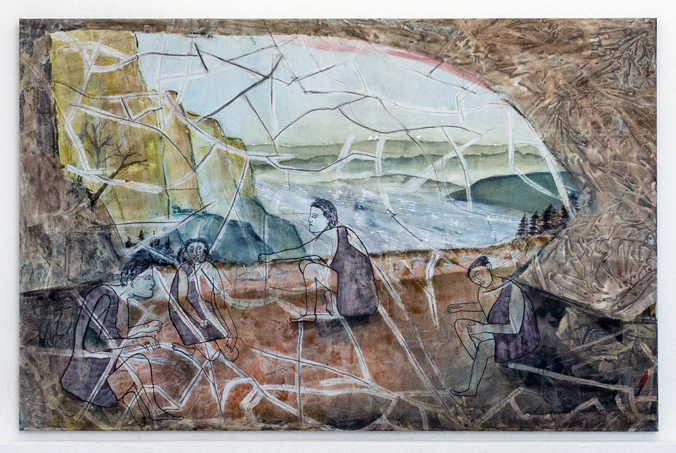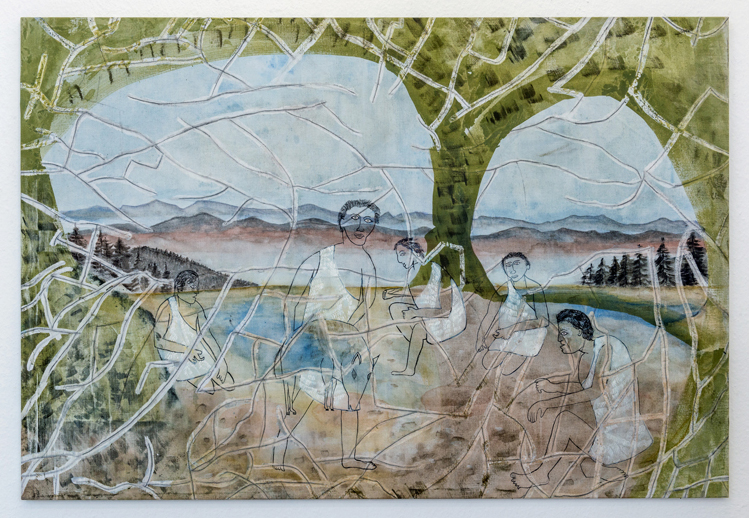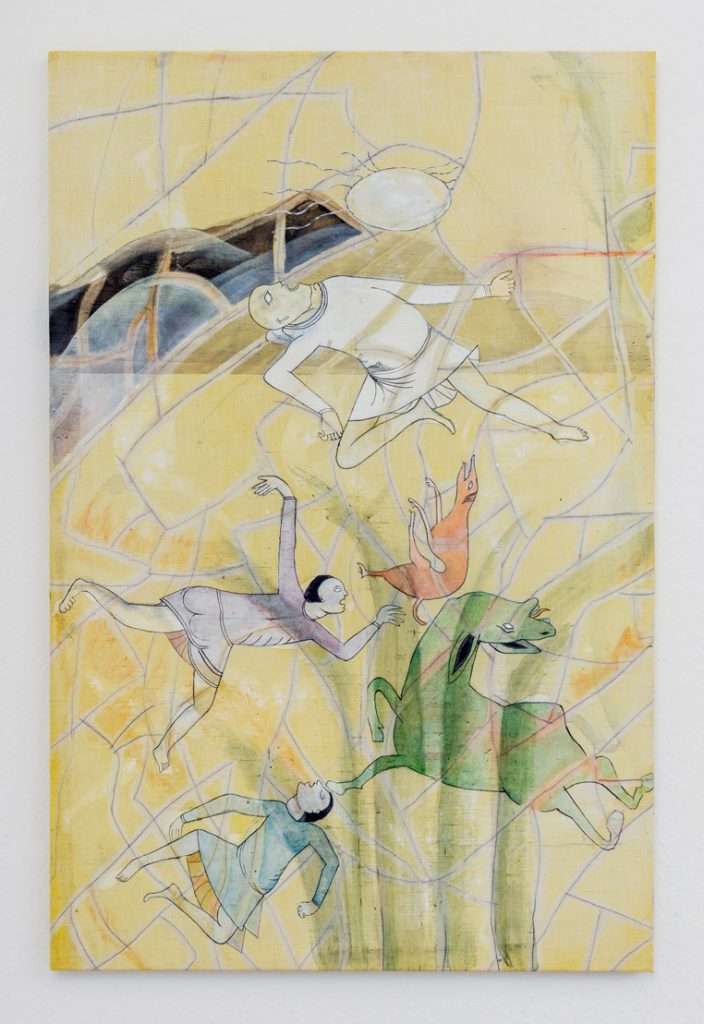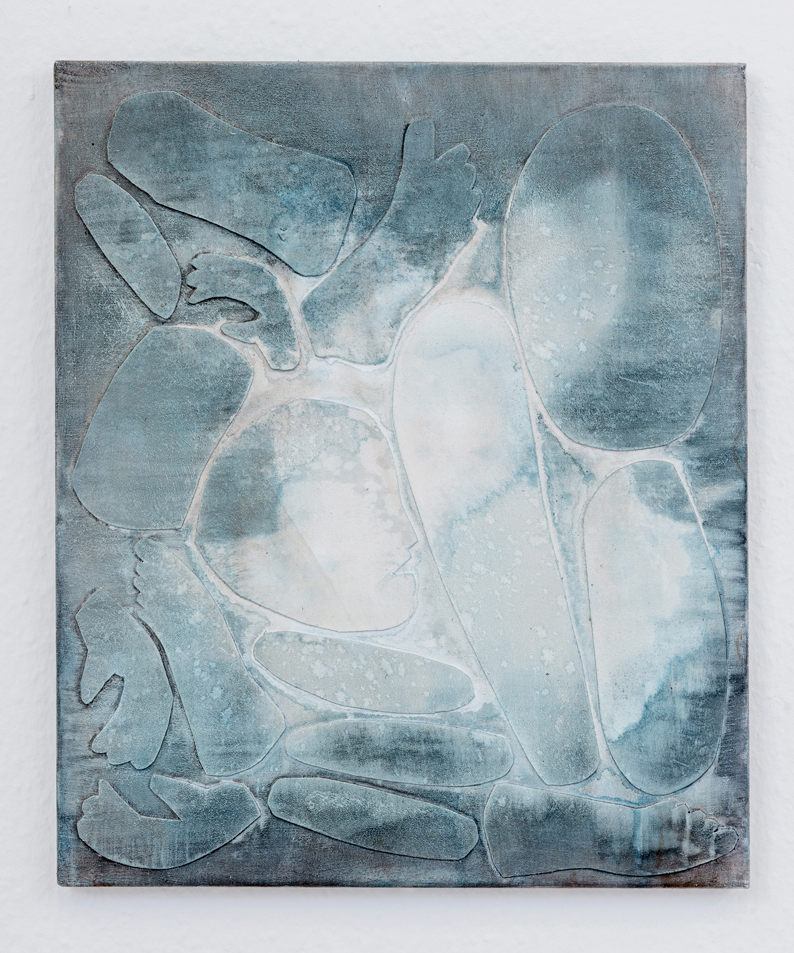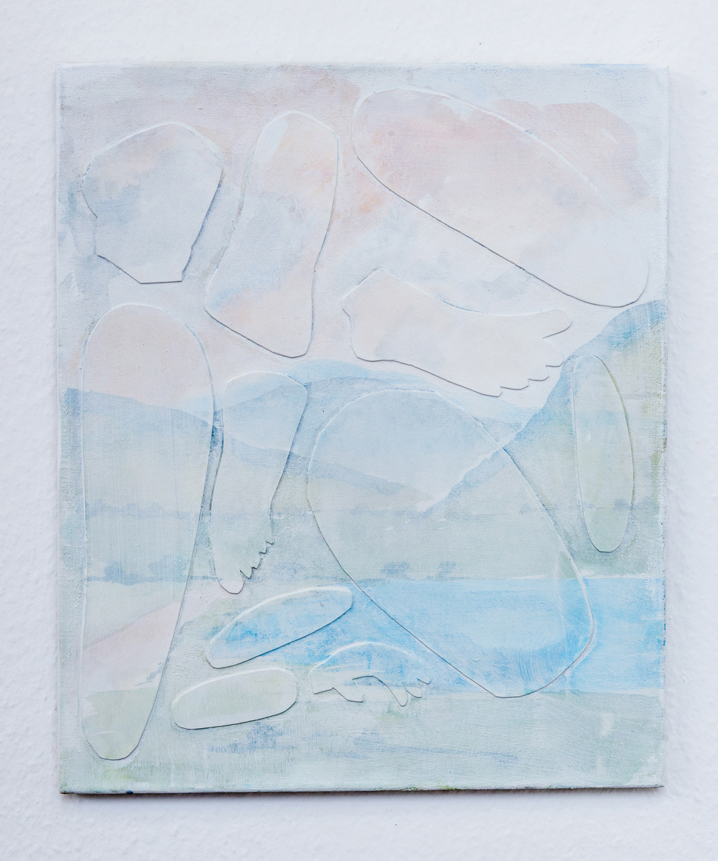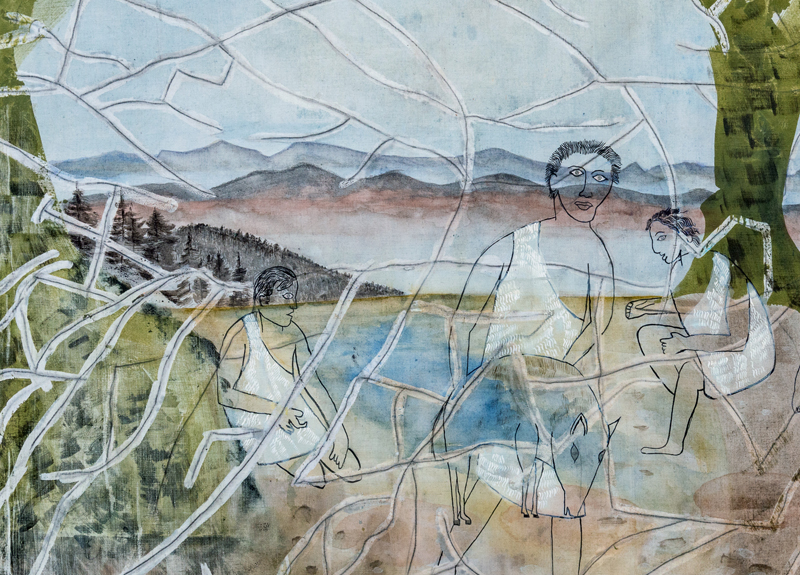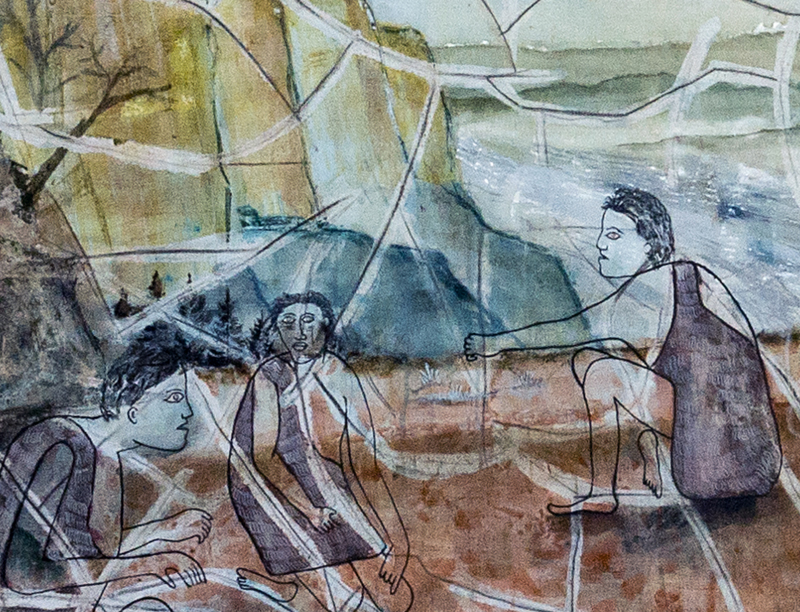Exhibition: 31.07.2016 – 17.09.2016
Opening: 30.07.2016, 19:00
|
. . human primates (ambition) 2016, acrylic on dyed fabric, 90 x 135 cm . . . . human primates (specialization) . . . . . . . . . agony/cells . . . . . . . source .. . . . . . . source II . . . . . . . source III . . . . human primates (specialization), detail . . . . human primates (ambition) , detail |
|
Press Release:
In fact, installing the show I was somehow distracted and in a state of leisure. That ́s why I would rather like to present some quotes, which I hope one might find, at some points, aestheticized in the show. They all have in common a certain preoccupation with human instincts. Of course, there are more.
sharing secrets
Homo sapiens emerged on the Savannah Plain some 200,000 years ago, yet according to evolutionary psychology, people today still seek those traits that made survival possible then: an instinct to fight furiously when threatened, for instance, and a drive to trade information and share secrets. Human beings are, in other words, hardwired. You can take the person out of the Stone Age, evolutionary psychologists contend, but you can’t take the Stone Age out of the person.
Nigel Nicholson, Harvard Business review, 1998
owning
„Owning your own home. Having something to pass on to your children. These are deep human instincts. The Labour Party would deny those instincts.“
Margaret Thatcher, Speech at Fleetwood, 1983
fear
„Das Unkonkrete ist das Wesen der Angst. Gehen wir zurück in die Savanne. Unser Vorfahr verlor schlagartig seine Angst, wenn der Löwe ihm direkt gegenüberstand, dann musste er handeln. Er hatte Angst, wenn er damit rechnen musste, dass ein Löwe in der Nähe sein könnte. Die Angst machte ihn wachsam und hat ihn davor geschützt, erwischt zu werden. Angst ist ein Warnsignal. Sei bereit, heißt es. Deshalb ist die Angst vor Terrorismus auch groß, obwohl kaum jemand je einem Terroristen gegenüberstand.“
Ortwin Renn, Spiegel Online, 2016
specializing
„In a tribe of hunters or shepherds, a particular person makes bows and arrows, for example, with more readiness and dexterity than any other. He frequently exchanges them for cattle or for venison, with his companions; and he finds at last that he can, in this manner, get more cattle and venison, than if he himself went to the field to catch them. From a regard to his own interest, therefore, the making of bows and arrows grows to be his chief business, and he becomes a sort of armourer.“
Adam Smith, the Wealth of Nations, 1776
